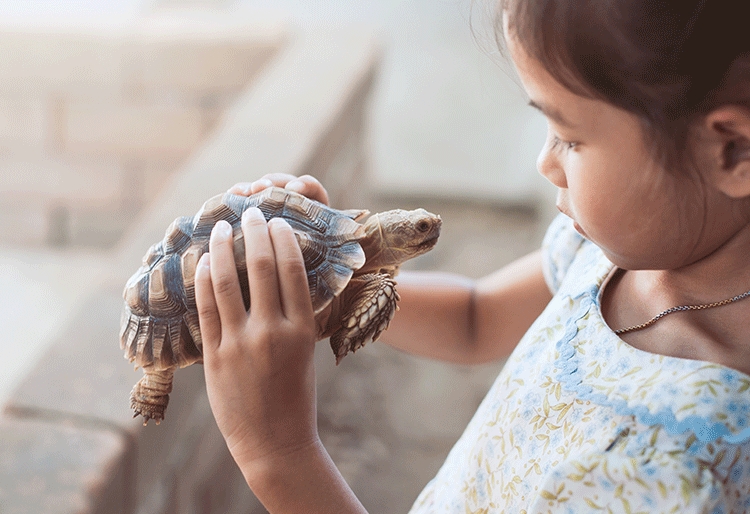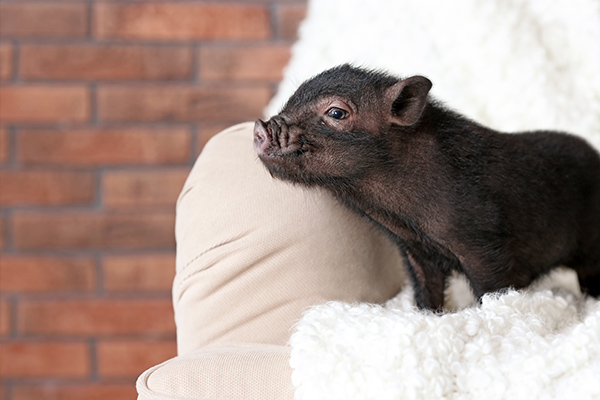New law on invasive exotic species
Vietnamese pigs, pythons, peninsular tortoises and monitor lizards from the Savannah can no longer be kept as pets. These are the latest new items to be included by the Government in the Invasive Exotic Species Catalogue last March due to being considered a serious threat to biodiversity. Below, we tell you what you need to do if you own one.
pets
Share

What is an invasive species?
Invasive exotic species are animals that are not native to the Spanish territory and, if they are released into our natural environment, will pose an ecological threat to wild native species and to the economy, particularly to agricultural produce, livestock and forestry, and even to public health.
Faced with the increasing growth in these species, the Government’s Ministry for Ecological Transition has created a catalogue of invasive exotic species (Royal Decree 630/2013, of 2 August). The catalogue has been gradually increasing and now contains over 100 different animals.
And what now?
Since last March, the possession, transportation, trafficking and trade of these 4 animals are prohibited, as is their introduction into the natural environment. But don’t worry, because you will be able to keep them, although you will need to comply with some requirements before 1 January 2022. The Governments of the autonomous regions have been charged with implementing the necessary measures so that keeping animals acquired before 31 March 2019 continues to be legal.
The minimum requirements demanded from the owners of these animals will be:
- Application for possession: completion of a form providing information about the animal to the relevant authorities of each autonomous community.
- Sterilisation of the animal (whenever this is established by law).
- System and registration with a veterinary surgeon. System and registration with a veterinary surgeon.
- Signing a statement declaring responsibility by the owner.
- Immediate notification of the accidental release of the animal.
- The trade, reproduction or transfer of these animals will be prohibited.

If a person cannot comply with these requirements, they can voluntarily hand over their pet at a centre that each autonomous community will make available for this purpose.
In the case of the Ministry of Territory and Sustainability of the Government of Catalunya, a regulation is being prepared that will contain all the necessary information to carry out the legalisation of these animals and provide details of how this should be done by their owners. A summary of this will be published on their website. For the moment, anyone interested can telephone 012 to request information. Additionally, the Ministry has made a collaboration agreement with the Official School of Veterinary Surgeons of Catalunya which will make centres available to the Ministry for neutering the animals. Regarding their collection, this autonomous community is preparing Government Centres for Exotic Animals, as well as making agreements with private sanctuaries.
The Valencian Government’s Ministry for Agriculture, Rural Development, Climate Emergency and Ecological Transition is also working on this. To request information and the declaration of animal ownership you should contact the Ministry’s Wildlife Service. If you want to hand an animal over, owners can take them to some of the Valencian Community Fauna Recovery Centres, where they will be euthanised as required by law.
Therefore, while the autonomous communities prepare to enforce this legislation, the best thing to do is to keep caring for your pet in a responsible manner and consult with the relevant authorities to legalise the status of these animals.






